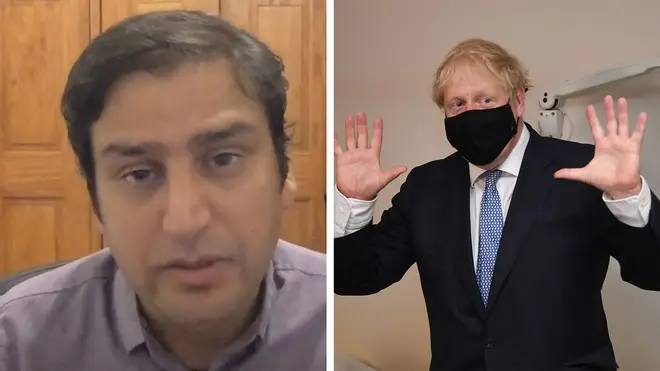
Nick Ferrari 7am - 10am
29 July 2020, 09:02 | Updated: 7 June 2023, 08:56

Is there really a second wave in Europe? John Hopkins University expert explains
After Boris Johnson said a second wave of coronavirus was already underway in Europe, a world expert from Johns Hopkins University looked at the figures to see if he's right.
Speaking during a visit to Nottinghamshire, the Prime Minister said yesterday: "What we have to do is take swift and decisive action where we think that the risks are starting to bubble up again.
"Let's be absolutely clear about what's happening in Europe, amongst some of our European friends, I'm afraid you are starting to see in some places the signs of a second wave of the pandemic."
The Johns Hopkins Centre has been the world-leading institution tracking the infection across the world. Darren Adam spoke to Dr Amesh Adalja to find out if he was correct.

He said: "We are seeing some increased activity in parts of Spain, but I don't think it's useful to number these. We have to realise this virus has established itself in the human population, so as people socially interact, you're going to get resurgences.
"The question is: do those countries have enough public health capacity to keep those cases from spilling into hospitals, starting larger outbreaks and starting chains of transmission among vulnerable people.
"It does look like there are variable degrees in how countries have handled their ability in this time when they've had a lull in cases."
Reports suggest Belgium and Luxembourg will be added to the list from where travellers need to quarantine. And Dr Adalja said he would expect more countries to be included.
He said: "In general, the EU does not have the kind of problems that we've had here in the US. But you have to look at the metrics, because it's going to be something that's with us until we have a vaccine.
"But it doesn't have to be a whole country, we can be much more precise with the data that we have."